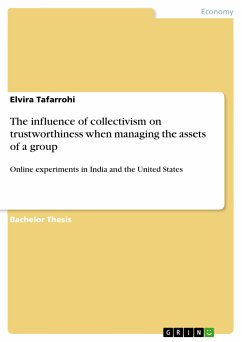Master's Thesis from the year 2021 in the subject Business economics - General, grade: 2,0, University of Applied Sciences Essen, language: English, abstract: What are the specific personality traits that come together to create a social entrepreneur? How can we empower future social entrepreneurs? What skills and potentials should be awakened and cultivated? Dees provides one of the classic definitions of social entrepreneurship. According to him, social entrepreneurs are change agents with a mission. They focus not only on personal value but also on social value. They recognise opportunities based on this mission, and they use continuous innovation, adaptation and learning in this recognition process. They also act courageously and are responsible at the same time. In addition to Dees' basic description, Tracey and Phillips define social entrepreneurship as creating a business with a social purpose. Thus, it involves both the pursuit of the economic principle and social construction. There are three critical challenges for educating social entrepreneurs in achieving these dual goals. First, managing accountability to respond appropriately to all stakeholders; secondly, managing the double bottom line to balance commercial and social goals; and third, managing identity with a clear stance on social and economic goals. Looking at current world events, the need for the action described above seems almost obvious. Despite the enormous progress in the quality of life that humanity has made over the last two centuries, many problems remain, and new ones have arisen. Despite steady economic growth, much of the world lives in poverty. Access to education, as well as quality, varies widely around the world. Violence and conflict exist at all levels, from the personal to the global. The earth is warming, the polar ice caps are melting, and biodiversity is declining at an unusually rapid rate, raising serious questions about the impact on future generations, whatever the cause. We may not all agree on our visions of an ideal world, but we can generally agree that the gap between reality and our excellent ideas is still enormous. Dees cites the concept of social entrepreneurship as a promising strategy to address this challenge. The world offers already examples of its success. Numerous renowned universities, including Harvard, Stanford, Columbia, and Oxford, already support social entrepreneurs implementing innovative business models. In addition, numerous foundations exist worldwide to provide financial support for these types of enterprises.
Dieser Download kann aus rechtlichen Gründen nur mit Rechnungsadresse in A, B, BG, CY, CZ, D, DK, EW, E, FIN, F, GR, HR, H, IRL, I, LT, L, LR, M, NL, PL, P, R, S, SLO, SK ausgeliefert werden.









